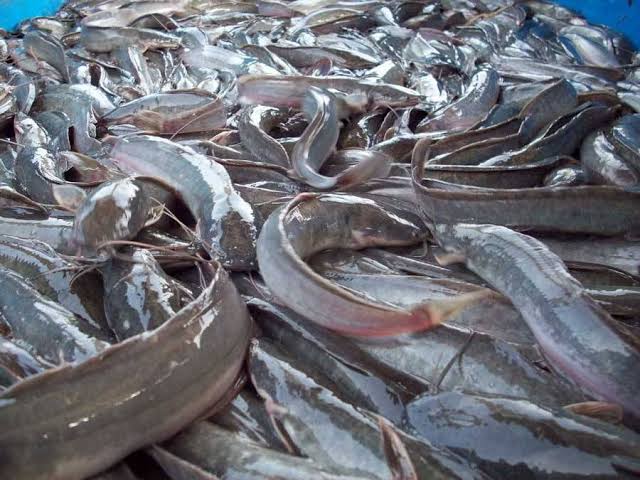Seafood’s global high demand is responsible for illegal, unregulated, and unreported fishing, the United States says.
Jennifer Littlejohn, U.S. Acting Assistant Secretary, Bureau of Oceans and International Environmental and Scientific Affairs (OES), said this during a digital news conference.
She was speaking on efforts by the U.S. to curb environmental challenges in Africa, on Tuesday in Accra, Ghana, ahead of the United Nations Environment Assembly (UNEA) slated for Nairobi, Kenya.
Fielding questions from the online participants, Littlejohn explained that illegal, unregulated, unreported fishing for seafood’s (IUU), has had the greatest impact on marine biodiversity in the past 50 years.
According to her, the global surge in fish demand has also increased pressure on fish stocks from fleets globally, both on the high seas and in areas under national jurisdiction, with negative environmental consequences.
“As it (demand) continues to grow, there are more and bigger fishing vessels than ever before working to feed this market. And of course, we know that the lucrative but competitive global fisheries market also spurs vessels to try to avoid the operational costs associated with sustainable fisheries management by engaging again in IUU fishing.
“The 2019 Intergovernmental Science-Policy Platform on Biodiversity Ecosystem Services – report on global biodiversity concluded that fishing has had the greatest impact on marine biodiversity in the past 50 years, which is exacerbated by IUU fishing.
“So IUU fishing can result in overfishing, which damages ocean biodiversity, and additionally, the use of prohibited gear can result in bycatch of non-target species, causing yet even greater harm to biodiversity.”
She said that IUU fishing may also degrade marine ecosystems, such as corals and sea mounds with negative consequences for the marine species that depend on these habitats.
Littlejohn said IUU fishing costs the world tens of billions of dollars annually, with a recent UN Food and Agriculture Organization (FAO) report indicating that this may represent 26 million tons of fish caught annually.
The diplomat said the U.S. seafood imports alone were worth about two and a half billion US dollars a year, with nearly 11 percent of the U.S. market derived from IUU fishing.
“Now, as both a major harvester and a top market for fishing products, the United States has, I would say, long emphasized working with other countries to improve fisheries governance and enforcement to prevent IUU-sourced fish and fish products from entering our markets, and I know that that is the same for markets around the globe.
“So speaking from the U.S. perspective, the United States is a leader in promoting sustainable fisheries internationally through effective, science-based fisheries management and cooperative tools to combat IUU fishing, including strong monitoring, control, and surveillance measures.
“Now, the United States promotes the implementation of the Port State Measures Agreement, a groundbreaking treaty designed to ensure catches from IUU fishing vessels cannot be offloaded in ports and then, of course, enter the global market,” she said.
Littlejohn said that the U.S. also helped launch, through the FAO, the Global Record of Fishing Vessels – its Refrigerated Transport Vessels and Supply Vessels, as part of the measures to curb the menace of illegal, unreported, unregulated fishing.
“This innovative, publicly accessible record of the world’s fishing vessels increases transparency in international fisheries and enhances the ability of countries and markets to verify fishing’s identity,” she added.


